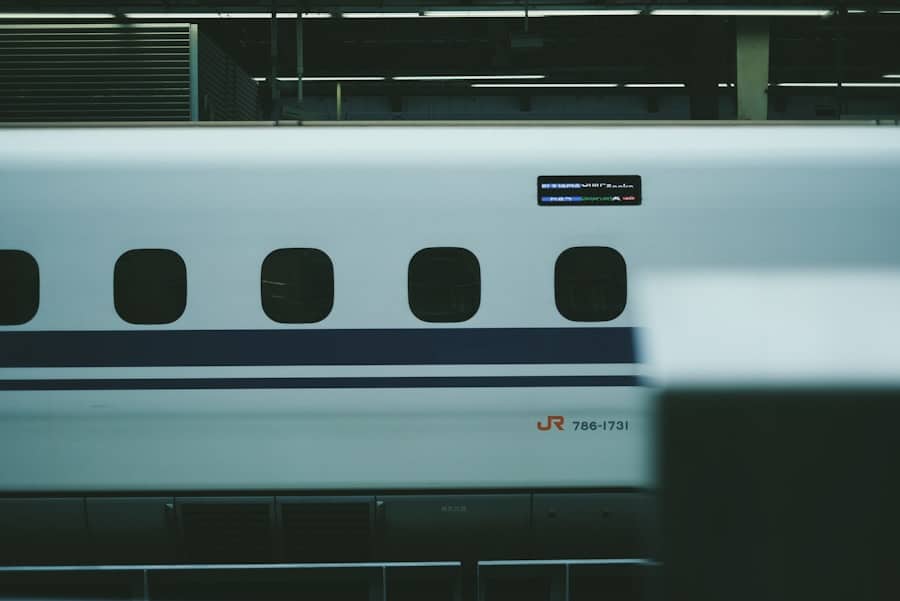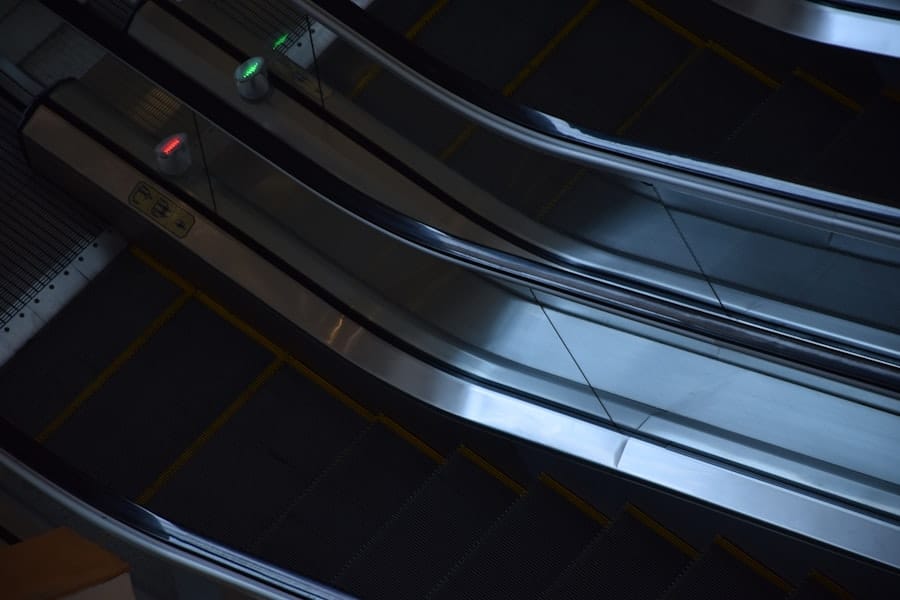The landscape of video production has undergone a seismic shift with the advent of artificial intelligence (AI). AI-driven platforms are revolutionizing how content is created, edited, and distributed, making the process more efficient and accessible than ever before. These platforms leverage advanced algorithms and machine learning techniques to automate various aspects of video production, from pre-production planning to post-production editing.
As a result, they are not only enhancing the creative capabilities of filmmakers but also democratizing the art of video creation, allowing individuals and organizations with limited resources to produce high-quality content. The integration of AI into video production is not merely a trend; it represents a fundamental change in the industry. Traditional video production often involves a complex interplay of various roles, including scriptwriters, directors, editors, and sound engineers.
However, AI-driven platforms streamline these processes by providing tools that can analyze footage, suggest edits, and even generate scripts based on user input. This shift is particularly significant in an era where content consumption is at an all-time high, and the demand for engaging video content continues to grow. By harnessing the power of AI, creators can focus more on storytelling and less on the technical intricacies of production.
Key Takeaways
- AI-driven platforms are revolutionizing video production by automating and enhancing various stages of the process.
- These platforms offer benefits such as increased efficiency, cost savings, and improved creative possibilities.
- Key features include automated editing, intelligent scene recognition, and real-time collaboration tools.
- Successful case studies demonstrate significant improvements in production speed and quality using AI technologies.
- Choosing the right AI platform requires evaluating specific needs, scalability, and integration capabilities for future growth.
The Benefits of Using AI-Driven Platforms in Video Production
One of the most compelling advantages of AI-driven platforms in video production is their ability to significantly reduce the time and effort required to produce high-quality videos. For instance, AI algorithms can analyze vast amounts of footage in a fraction of the time it would take a human editor. This capability allows creators to quickly identify the best shots and sequences, streamlining the editing process.
In a world where deadlines are often tight, this efficiency can be a game-changer for production teams. Moreover, AI-driven platforms enhance creativity by providing tools that inspire new ideas and approaches. For example, some platforms utilize natural language processing to generate script suggestions based on themes or keywords provided by the user.
This feature not only saves time but also encourages creators to explore different narrative possibilities they may not have considered otherwise. Additionally, AI can assist in color grading and sound design, offering recommendations that align with industry standards or specific artistic visions. This collaborative relationship between human creativity and AI technology fosters an environment where innovative storytelling can flourish.
How AI-Driven Platforms are Transforming the Video Production Process

The transformation brought about by AI-driven platforms extends beyond mere efficiency; it fundamentally alters the entire video production workflow. In pre-production, AI tools can assist in scriptwriting by analyzing successful scripts from various genres and suggesting plot structures or character arcs that resonate with audiences. This data-driven approach allows creators to make informed decisions early in the process, increasing the likelihood of producing content that captures viewers’ attention.
During production, AI technologies such as computer vision can enhance camera operations by automatically adjusting settings based on lighting conditions or scene composition. For instance, some platforms offer real-time feedback on shot composition, helping directors achieve visually compelling results without extensive trial and error. In post-production, AI algorithms can automate tedious tasks like syncing audio with video or generating subtitles, freeing up editors to focus on more creative aspects of their work.
This holistic transformation not only accelerates the production timeline but also elevates the overall quality of the final product.
Key Features and Capabilities of AI-Driven Platforms in Video Production
AI-driven platforms come equipped with a myriad of features designed to enhance every stage of video production. One notable capability is automated editing, where AI analyzes footage to create rough cuts based on predefined criteria such as pacing, shot selection, and emotional tone. This feature is particularly beneficial for content creators who may lack extensive editing experience but still wish to produce polished videos.
Another key feature is intelligent tagging and organization of media assets. AI can automatically categorize footage based on visual elements, audio cues, or even facial recognition, making it easier for editors to locate specific clips during the editing process. Additionally, many platforms offer advanced analytics tools that provide insights into audience engagement and performance metrics.
By understanding which elements resonate with viewers, creators can refine their approach for future projects. Furthermore, some AI-driven platforms incorporate machine learning algorithms that adapt over time based on user preferences and feedback. This adaptability ensures that the tools become increasingly aligned with a creator’s unique style and workflow, ultimately enhancing productivity and satisfaction.
Case Studies: Successful Implementation of AI-Driven Platforms in Video Production
Several organizations have successfully integrated AI-driven platforms into their video production processes, showcasing the transformative potential of this technology. One notable example is the use of AI by major film studios for script analysis and development.
The insights gained from this analysis led to the development of a blockbuster film that resonated with audiences worldwide. In another instance, a marketing agency utilized an AI-driven platform to streamline its video content creation for social media campaigns. By leveraging automated editing tools and intelligent tagging features, the agency was able to produce high-quality promotional videos at a fraction of the time it previously took.
The result was not only an increase in output but also improved engagement rates across their social media channels. These case studies illustrate how organizations across various sectors are harnessing the power of AI-driven platforms to enhance their video production capabilities. By embracing this technology, they are not only improving efficiency but also unlocking new creative possibilities.
The Future of AI-Driven Platforms in Video Production

As technology continues to evolve, the future of AI-driven platforms in video production looks promising. One potential development is the increased integration of virtual reality (VR) and augmented reality (AR) capabilities within these platforms. By combining AI with immersive technologies, creators could develop interactive video experiences that engage audiences in unprecedented ways.
Imagine a scenario where viewers can influence the storyline through their choices, all facilitated by AI algorithms that adapt the narrative in real-time. Additionally, advancements in deep learning could lead to even more sophisticated editing tools capable of understanding context and emotional nuances within footage. This would enable AI to make creative decisions that align closely with a director’s vision, further blurring the lines between human creativity and machine intelligence.
As these technologies mature, we may see a new era of collaboration between human creators and AI systems that enhances storytelling while preserving artistic integrity. Moreover, as more creators adopt AI-driven platforms, we can expect a shift in industry standards regarding content creation and distribution. The democratization of video production will likely lead to an influx of diverse voices and perspectives in media, enriching the cultural landscape and fostering innovation across genres.
Considerations for Choosing the Right AI-Driven Platform for Video Production
Selecting the right AI-driven platform for video production requires careful consideration of several factors tailored to specific needs and goals. First and foremost is understanding the unique requirements of your project or organization. Different platforms offer varying features; some may excel in automated editing while others focus on script generation or analytics capabilities.
Identifying which aspects are most critical for your workflow will help narrow down your options. Another important consideration is user-friendliness. While many AI-driven platforms boast powerful features, they should also be accessible to users with varying levels of technical expertise.
A platform that offers intuitive interfaces and comprehensive tutorials can significantly enhance user adoption and satisfaction. Additionally, evaluating customer support options is crucial; responsive support teams can provide assistance during critical moments in production. Budget constraints also play a significant role in decision-making.
While some platforms may offer robust features at a premium price point, others provide essential functionalities at more affordable rates. It’s essential to weigh the cost against potential benefits to ensure that you’re making a sound investment in your video production capabilities.
Embracing the Potential of AI-Driven Platforms in Video Production
The rise of AI-driven platforms marks a pivotal moment in the evolution of video production. By harnessing advanced technologies that streamline workflows and enhance creativity, these platforms empower creators to produce high-quality content more efficiently than ever before. As demonstrated through various case studies and industry trends, organizations across sectors are reaping the benefits of integrating AI into their production processes.
Looking ahead, the potential for further innovation within this space is immense. As technology continues to advance, we can anticipate even more sophisticated tools that will redefine how stories are told through video. Embracing these changes will not only enhance individual projects but also contribute to a richer tapestry of diverse narratives in media.
The future belongs to those who are willing to explore the possibilities offered by AI-driven platforms in video production—an exciting frontier for creators everywhere.
In the realm of video production, the integration of AI-driven platforms is revolutionizing the way content is created and edited. For those interested in enhancing their audio experience while working with these innovative tools, a related article on the best headphones of 2023 can provide valuable insights. You can read more about it here: The Best Headphones 2023. This resource will help you choose the perfect headphones to complement your video production setup, ensuring high-quality sound to match your stunning visuals.
FAQs
What are AI-driven platforms in video production?
AI-driven platforms in video production are software tools that utilize artificial intelligence technologies to automate, enhance, or streamline various aspects of creating video content. These platforms can assist with tasks such as editing, scripting, visual effects, and content personalization.
How do AI-driven platforms improve video production?
AI-driven platforms improve video production by increasing efficiency, reducing manual labor, and enabling more creative possibilities. They can automate repetitive tasks like cutting and sorting footage, enhance image and sound quality, generate subtitles, and even create video content based on text input.
What types of AI technologies are used in video production platforms?
Common AI technologies used in video production include machine learning, computer vision, natural language processing, and deep learning. These technologies help in recognizing objects, understanding speech, generating scripts, and applying visual effects automatically.
Are AI-driven video production platforms suitable for beginners?
Yes, many AI-driven video production platforms are designed with user-friendly interfaces that cater to beginners. They often provide automated features and templates that simplify the video creation process without requiring advanced technical skills.
Can AI-driven platforms replace human video editors?
While AI-driven platforms can automate many tasks and speed up production, they are generally considered tools that assist human editors rather than replace them entirely. Creative decision-making, storytelling, and nuanced editing still benefit from human expertise.
What are some popular AI-driven video production platforms?
Popular AI-driven video production platforms include tools like Adobe Premiere Pro with AI features, Magisto, Lumen5, and Synthesia. These platforms offer various AI-powered functionalities such as automated editing, video creation from text, and AI-generated avatars.
Is AI-driven video production cost-effective?
AI-driven video production can be cost-effective by reducing the time and resources needed for manual editing and production tasks. However, costs vary depending on the platform, subscription model, and the complexity of the project.
How does AI handle video personalization?
AI can analyze viewer data and preferences to create personalized video content tailored to specific audiences. This includes customizing video elements like language, visuals, and messaging to increase engagement and relevance.
Are there any limitations to using AI in video production?
Yes, limitations include potential lack of creative nuance, occasional errors in automated editing, and dependency on the quality of input data. AI may not fully capture the artistic vision or emotional impact that human editors provide.
What is the future outlook for AI in video production?
The future of AI in video production is promising, with ongoing advancements expected to further enhance automation, creativity, and personalization. AI is likely to become an integral part of the video production workflow, complementing human creativity and technical skills.

